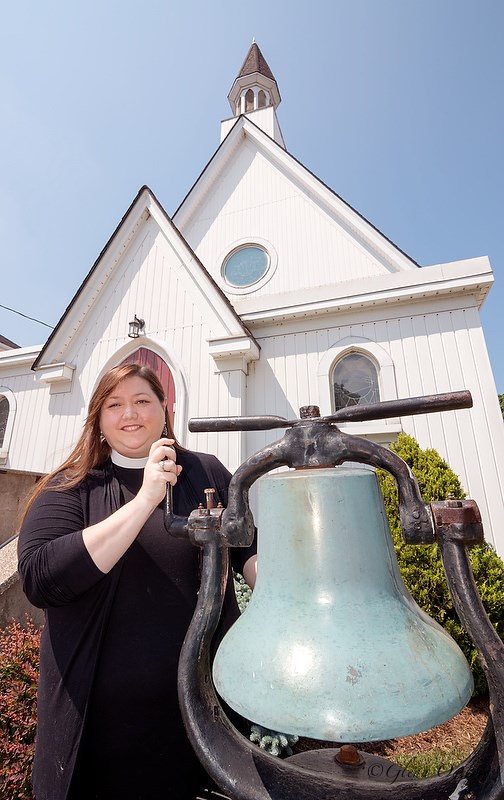Cathy Dobson
Area residents are hearing a lot of church bells these days as a trio of Anglican churches honour dead and missing aboriginal women.
“We wanted to find a way to remember these women,” said Rev. Kristen Oliver of St. Paul’s Anglican Church in Point Edward. “We feel there should be an inquiry to find out why there are so many.
“I have to think that if these women were white, there would have been an inquiry.”
Prime Minister Stephen Harper continues to reject a formal inquiry into the deaths of 1,017 murdered aboriginal women over a 30-year period from 1980 to 2012, as well as another 164 missing women dating back to 1952.
Harper says the deaths should be viewed as crimes, not a sociological phenomenon, and police should investigate.
“When you think that 1,017 people represents half the village of Point Edward, what if half the village was just gone?” asked Oliver. “And what if no one said anything about it?”
St. Paul’s on Michigan Avenue, Canon Davis Memorial Anglican Church on Russell Street and Christ Church on Oil Street in Petrolia are participating in the daily bell ringing, from May 31 to June 21.
Each day at noon volunteers are ringing the church bells 53 times, and 68 times on the final day, June 21, for a total of 1,181 rings, representing each missing or dead aboriginal woman. St. Paul’s bell is located on the front lawn where a sign will be erected explaining the ringing and reading, “No more silence,” at the bottom.
Anglican churches across Canada are participating in the awareness event, said Oliver.
“It’s shocking to think that aboriginal women make up four per cent of Canada’s population, but represent 16 per cent of all murdered females over those 30 years, and 12 per cent of all missing females on record,” she said.
In ringing the bells, the Anglican Church is also recognizing two other important events related to the aboriginal population.
The ringing began May 31 to coincide with the release of the final report of the Truth and Reconciliation Commission on Residential Schools in Canada.
“We have a number of residential school survivors in our area,” said Oliver.
She believes the violence that plagues the aboriginal population today may be connected to the experience of past generations at the residential schools.
“It’s my opinion that residential schools stole identities and created a generation that doesn’t know who they are.”
The final day of ringing, June 21, is National Aboriginal Day of Prayer and the third important event being marked by the Anglican Church.
“Bells are rung for all kinds of reasons, for joyful weddings, and also for funerals and emergencies,” said Oliver.
“I think the tragic deaths and disappearances of aboriginal women is an emergency situation that needs to be addressed.”
